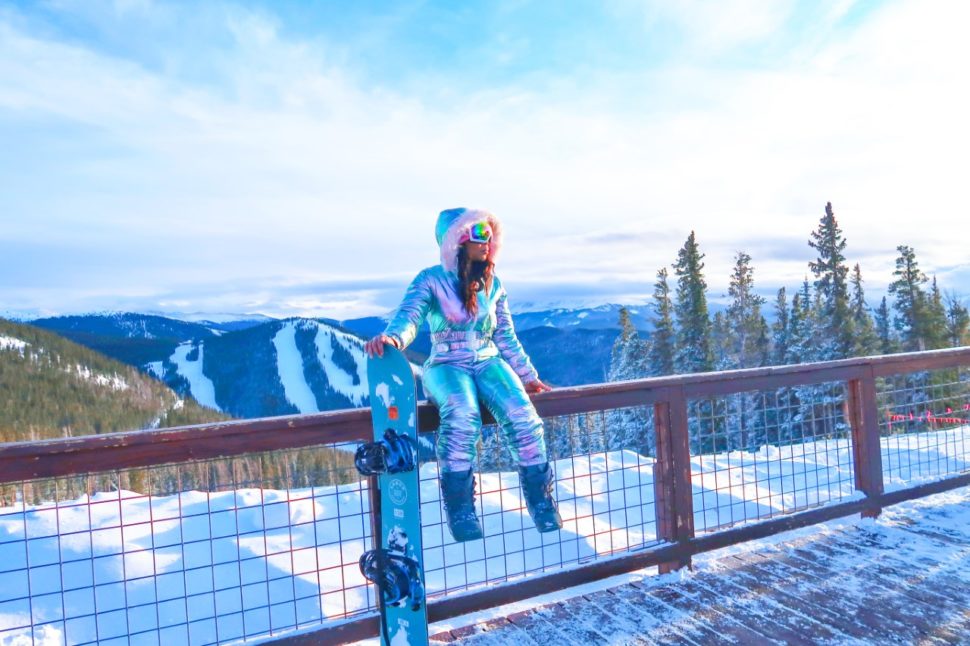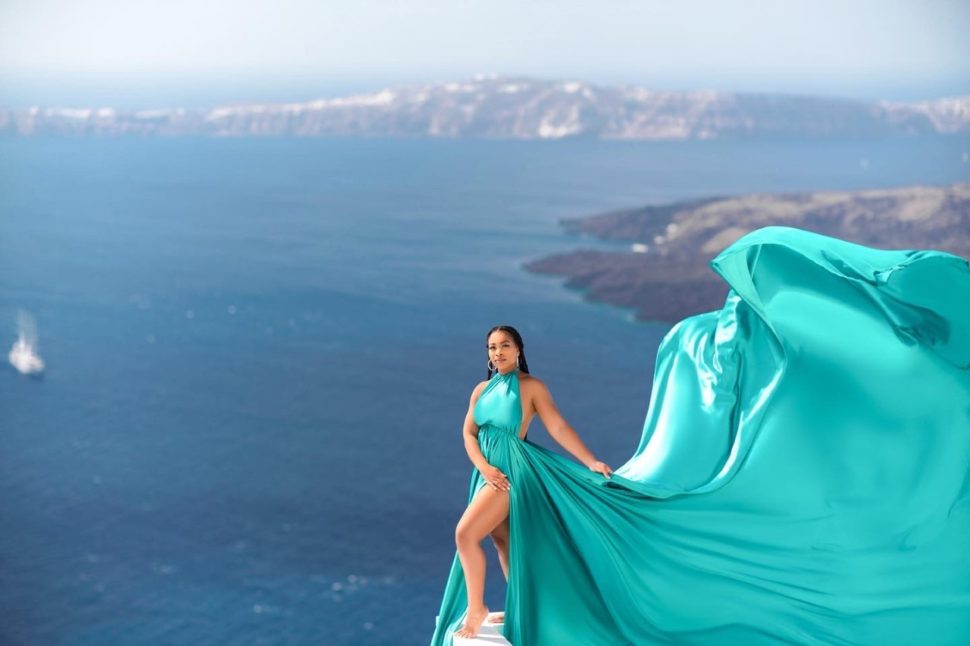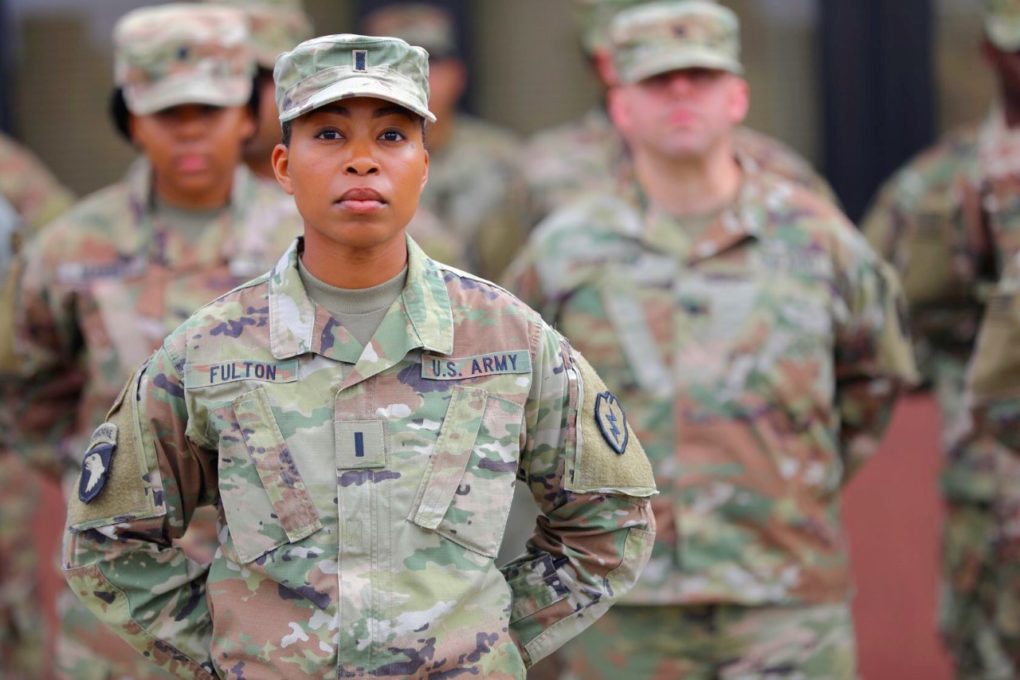Before joining the Army, Shenicquia Fulton’s travel experience was limited; barely extending beyond driving two hours to the beach. Born into humble beginnings in South Carolina, she moved to Virginia when she was an adolescent, and considers the DMV home. She enlisted in 2007, and it changed her life forever.
“I’m still on active duty,” Shenicquia told Travel Noire. “I initially started out as an enlisted soldier, and after six years, I decided to pursue my Bachelor degree and begin the process of becoming an officer. I did Army ROTC at Charleston Southern University/The Citadel Military Academy, and was commissioned as a Second Lieutenant in 2016. I’m now a Captain and Company Commander, which is still unbelievable to me since I started out as a private with no rank.”

Shenicquia’s travel journey started domestically. She spent long weekends with friends in Los Angeles, Las Vegas, Miami and New York City. Shortly after her first deployment to Iraq, she went on a cruise with her mother which included stops in Mexico, Honduras, the Cayman Islands and Belize. While on the ship, Shenicquia determined that she would see as much of the world as she could, and the Army has been instrumental in that goal.
“Six hours in each of those countries wasn’t enough time to explore and really enjoy them,” she said. “The cruise kickstarted my love of wanderlust, seeing other countries and experiencing their cultures. Some of the countries I’ve traveled to while in the service are the Bahamas, Antigua, Morocco, Egypt, Dubai, Thailand, Bali, Maldives, Panama, France, Portugal, Greece, Jamaica, Dominican Republic, Guatemala, Japan, and Turkey. I’ve also visited over thirty states.”

If you talk to those who have served in any branch of the armed forces, no matter what era, they’ll agree it requires a kind of discipline not everybody has. It pulls you out of your comfort zone and teaches you patience, perseverance and how to work with others. The service brought Shenicquia in contact with all kinds of people, from small town folks who had never met somebody of a different nationality or ethnicity, to those who left Fortune 500 companies to answer the call to serve their country.
“We have long days,” Shenicquia said. “I’m up at 5 AM every morning for physical training, which is from 6:30 AM to 8:00 AM. The workday starts at 9 AM, and depending on the unit you are in and the job you have, your day could end at 6 or 7 PM.”
Maintaining a relationship while serving poses another challenge, but this is offset slightly by the fact that Shenicquia’s husband is also in the Army.
“We’ve spent half of our time married living apart due to Army training and combat deployments,” she said. “We have seven deployments between us to Iraq and Afghanistan. We went to basic training together, so we have been in the service the same amount of time. We prioritize not bringing our work stress home, and spend at least two hours together for dinner and watching TV before bed. I try to always make the most of any time we have together because we aren’t promised tomorrow.”
The military hasn’t just shaped Shenicquia’s world view, it reminds her how fortunate she is to be afforded opportunities which aren’t accessible to all.
“Things we take for granted like running water, three meals a day, the opportunity to work and go to school-these are a luxury for some in other countries,” Shenicquia said. “Going to Iraq as a young 20-year-old, and seeing how they were still happy and surviving with the bare minimum, made me appreciate the life I have. I try not to take anything for granted.”
She’s interested in creating a travel agency that caters to veterans, and to facilitate that, she’s pursuing a travel advisor certification.
“I’m known as the traveler at work. People come to me for help with itineraries and vacation ideas, so I figured, why not take the extra step to become official? I want to show veterans that travel is attainable and that it is possible even with our stressful day-to-day demands. We get thirty days of free leave every year, and I want my fellow veterans to make the most of their leave privileges, as I feel it really helps with the work-life balance. Travel is an invaluable therapy that many of us need.”

Shenicquia shared her thoughts about how she’s been perceived as a Black woman overseas, and how the travel industry regards Black people in general.
“Speaking from personal experience, some of these other countries love Black women,” she said. “They will make you feel like Beyoncé walking down the street. While we may feel unappreciated and unprotected in America, our beauty and unique features are admired in other countries. The nickname my friends have for me, Brown Sugar, came from a girl’s trip to Mexico in 2016. We were walking through a shopping area, and a man drove past us at least four times, yelling how beautiful he thought we were. Once he said, ‘I love you my brown sugar, especially you in the white shirt!’ which was what I was wearing. That’s a memory I will cherish forever.”
Shenicquia remarked that the travel industry has a diversity problem, and that observation isn’t merely anecdotal. The Black Travel Alliance (BTA), which launched in 2020, “contacted 121 travel companies that publicly supported the Black Lives Matter movement or the Black Out Tuesday campaign via social media.” Of these, “only six provided figures indicating that they ensured Black representation on speaker panels, workshops and sessions at conferences and trade shows.”
“Black people are so underrepresented in the travel industry, yet we spend billions annually on traveling,” Shenicquia stated. “When you look at most tourism boards, hotel websites or social media pages, the majority of the people presented to us are white. We provide just as much value and insight to the travel space, and it’s important that we see people who look like us when researching countries to visit. I love following Black travel pages because we have to support each other to the fullest. If we don’t, who will?”
Keep apace with Shenicquia’s colorful travel adventures on Instagram @hey_gorgess.





